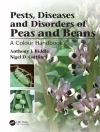NOVEL TECHNOLOGIES IN FOOD SCIENCE
Presenting cutting-edge information on new and emerging food engineering processes, Novel Technologies in Food Science, the newest volume in the ground-breaking new series, ‘Bioprocessing in Food Science, ‘ is an essential reference on the modelling, quality, safety, and technologies associated with food processing operations today.
Novel Technologies in Food Science, the latest volume in the series, ‘Bioprocessing in Food Science, ‘ is based on the novel technologies in usage and requirements for handling, processing, storage, and packaging of food. Novel bioprocessing technologies are gaining more interest among researchers and industries due to the minimal impact on product quality in comparison to conventional methods. These techniques are also superior in terms of energy, time-saving and extended shelf life, and thus can replace the conventional technologies partially or completely. Practical application of these technologies by the food industry, however, is limited due to higher costs, lack of knowledge in food manufacturers for the implementation of technologies, and validation systems. An in-depth discussion on consumer needs and rights, industry responsibilities, and future prospectus of novel technologies in food science are covered in this volume.
The main objective of this book is to disseminate knowledge about the recent technologies developed in the field of food science to students, researchers, and industry people. This will enable them to make crucial decisions regarding the adoption, implementation, economics, and constraints of the different technologies.
Different technologies like ultrasonication, pulse electric field, high-pressure processing, magnetization, ohmic heating, and irradiation are discussed with their application in food product manufacturing, packaging, food safety, and quality assurance. Whether for the veteran engineer or scientist, the student, or a manager or other technician working in the field, this volume is a must-have for any library.
关于作者
Navnidhi Chhikara, Ph D, is an assistant professor in the Department of Food Technology at Guru Jambheshwar University of Science and Technology, Hisar, India. She has eleven years of teaching and research experience and has taught various subjects, including health foods and food safety at the graduate and postgraduate levels. She has published more than sixty research papers in scientific and technical journals, is an editor and editorial board member of multiple international journals and has received numerous awards for her scholarship.
Anil Panghal, Ph D, is an assistant scientist in the Department of Processing and Food Engineering at CCS Haryana Agricultural University. Previously, he worked with Nestle as a production manager for nine years. His areas of expertise include bioprocessing, manufacturing, food chemistry, food science, and technology, FSMS, and nutrition. He obtained his Ph D in food technology, focusing on the molecular and physicochemical quality aspects of commercial wheat varieties. He has published various research papers in reputed journals and chapters for international publishers.
Gaurav Chaudhary, Ph D, is an assistant professor in the Department of Renewable and Bio-Energy Engineering at the College of Agricultural Engineering and Technology, Chaudhary Charan Singh Haryana Agricultural University in Hisar, India. He received Ph D from the Indian Institute of Technology in Roorkee, India in the field of biofuel and bioenergy. He has more than seven years of experience in teaching and research in the fields of bioenergy and biochemical engineering and has published many research articles in scientific and technical journals.












